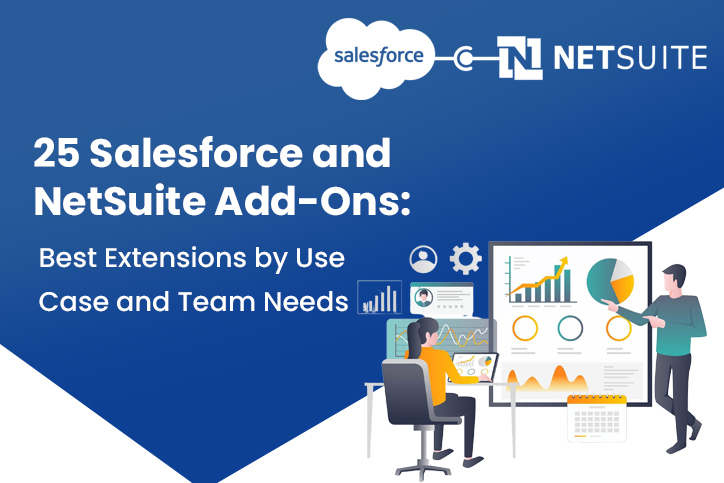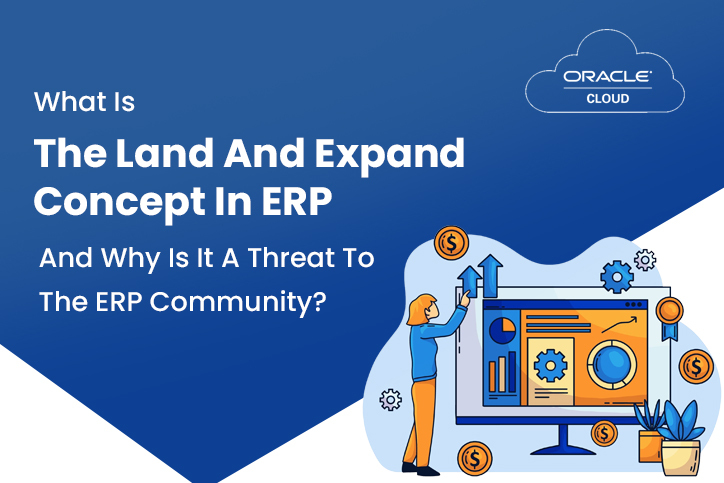ERP plays a pivotal role in a company’s resource planning by consolidating all necessary processes into a single system. According to a 2024 techreport, currently, 24% of companies utilize ERP software to manage their sales operations.
Among the numerous ERP solutions available, Oracle Cloud ERP stands out due to its comprehensive suite of applications designed to streamline business processes. However, successful Oracle ERP Cloud implementation requires a meticulous testing strategy.
This blog will guide you through the testing strategy for Oracle Cloud ERP implementation, ensuring your integration process is seamless and effective.
Why Should You Choose Oracle ERP Cloud Integration?
When considering an ERP solution, Oracle ERP Cloud integration emerges as a formidable choice. Oracle ERP Cloud offers a robust, scalable, and flexible solution that caters to the diverse needs of modern enterprises. But why exactly should you choose Oracle ERP Cloud integration?
Firstly, Oracle ERP Cloud provides a comprehensive suite of applications that integrate various business processes such as financials, procurement, project management, and more. This integration facilitates real-time data flow across departments, enhancing decision-making and operational efficiency.
Secondly, Oracle ERP Cloud is designed with scalability in mind. As your business grows, Oracle’s cloud-based solution can easily scale to accommodate increased data and user loads without compromising performance. This ensures that your ERP system remains aligned with your business needs over time.
Moreover, Oracle Fusion Cloud ERP, a part of the Oracle ERP Cloud suite, offers advanced features like AI-driven analytics, automated workflows, and intuitive user interfaces. These features not only enhance user experience but also drive innovation by leveraging emerging technologies.
Lastly, Oracle Cloud ERP support is another compelling reason to opt for this solution. Oracle provides extensive support services, including regular updates, security patches, and 24/7 customer assistance. This support framework ensures that your ERP system remains secure, up-to-date, and aligned with industry best practices.
Now, the implementation isn’t easy unless done with the right experts. Let’s discuss this further
Challenges With Oracle Cloud ERP Implementation
Implementing Oracle Cloud ERP can be transformative, but it comes with its own set of challenges. Here are some common hurdles you might encounter:
Complexity of Integration: Integrating Oracle Cloud ERP with existing systems can be complex and time-consuming.
Data Migration: Ensuring accurate and seamless data migration from legacy systems to the new ERP can be challenging.
Customization Requirements: Customizing the ERP to meet specific business needs often requires extensive configuration and development.
User Training and Adoption: Ensuring that all users are adequately trained and comfortable with the new system can be a significant hurdle.
Cost and Time Overruns: Implementations can often exceed initial budget estimates and timelines.
Change Management: Managing organizational change and ensuring all stakeholders are on board with the new system is critical.
Testing and Quality Assurance: Comprehensive testing is crucial to identify and rectify issues before the system goes live.
Successful Oracle ERP Cloud Implementation – Step by Step
To ensure a successful Oracle ERP Cloud implementation, it’s crucial to follow a structured approach. Here’s a step-by-step guide to help you navigate the process:
Step 1: Project Planning and Requirement Analysis
Begin with thorough project planning. Define your project scope, goals, timeline, and budget. Conduct a detailed requirement analysis to understand the specific needs of your business and how Oracle ERP Cloud can address them. Engage stakeholders from various departments to gather comprehensive requirements.
Step 2: Solution Design
Based on the gathered requirements, design your ERP solution. This involves mapping business processes to the functionalities offered by Oracle ERP Cloud. Identify any gaps and determine how to address them through customization or additional modules.
Step 3: Data Migration Strategy
Develop a data migration strategy to transfer data from legacy systems to Oracle ERP Cloud. Ensure data accuracy and completeness. Plan for data cleansing and validation processes to maintain data integrity during the migration.
Step 4: Configuration and Customization
Configure the Oracle ERP Cloud applications to align with your business processes. Customize the system as needed to meet specific requirements. Ensure that customizations are documented and tested thoroughly.
Step 5: Integration
Integrate Oracle ERP Cloud with other existing systems within your organization. This may involve integrating with CRM systems, third-party applications, or other internal databases. Ensure seamless data flow and interoperability between systems.
Step 6: User Training and Change Management
Implement a comprehensive training program for all users. Provide hands-on training sessions, workshops, and detailed user manuals. Address any resistance to change by communicating the benefits of the new system and involving key stakeholders in the transition process.
Step 7: Testing and Quality Assurance
Conduct rigorous testing at various stages of the implementation. This includes unit testing, integration testing, system testing, and user acceptance testing. Identify and rectify any issues to ensure the system functions as expected.
Step 8: Go-Live and Post-Go-Live Support
Execute the cutover plan and go live with Oracle ERP Cloud. Monitor the system closely during the initial days of operation to address any issues promptly. Provide post-go-live support to assist users and ensure a smooth transition.
Step 9: Continuous Improvement
Even after a successful go-live, the work doesn’t stop. Continuously monitor the system’s performance and gather feedback from users. Identify areas for improvement and implement necessary changes. Stay updated with Oracle Cloud ERP support to leverage new features and updates.
Let SoftArt be Your Partner in Oracle Implementation
Implementing Oracle ERP Cloud is a complex but rewarding journey that can transform your business
operations. To ensure success, it’s essential to have a reliable partner by your side. SoftArt offers comprehensive Oracle Cloud ERP support, from initial planning and integration to post-go-live assistance. With our expertise and commitment to excellence, we help you navigate the challenges and maximize the benefits of Oracle Fusion Cloud ERP.
Contact SoftArt today to learn how we can support your Oracle ERP Cloud integration and help your business achieve its digital transformation goals. Let us be your trusted partner in this journey towards operational excellence and innovation.









